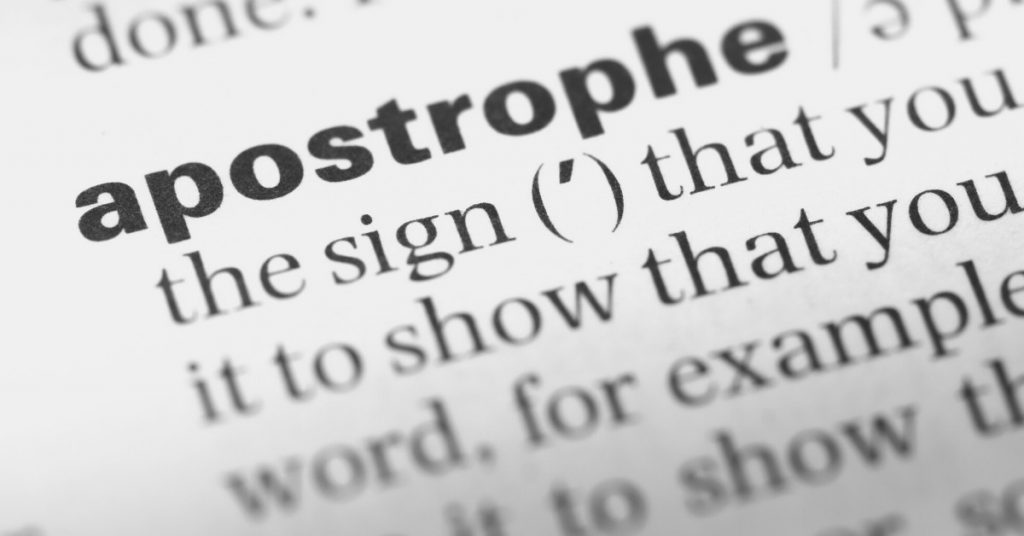Do grammar rules seem like a distant memory, like recess in elementary school? Some of you may not have looked at anything grammar related since middle or even elementary school. Unfortunately, you will still be expected to know selected English rules when you’re taking the multiple-choice writing section of either the SAT® or ACT®
Take, for instance, the apostrophe (‘), sometimes it goes before an “s,” and sometimes it goes after, and sometimes it isn’t used at all. Do you know when to use it and where to put it if it’s needed? If not, read on!
- First of all, don’t use an apostrophe just because a noun ends in “s.”

Because “cars” is plural (indicating more than one), it doesn’t require an apostrophe. That’s because it doesn’t possess anything.
Tip: Words that end a sentence should never have an apostrophe.
- Use an apostrophe when one noun possesses another (ex. “my parent’s car” or “my parents’ car”).
You’re probably more accustomed to seeing the apostrophe before the “s.” But it is sometimes after the “s.” How do you know? It has to do with whether the noun in question originally ended in an “s”—like most plural nouns do.
- If the noun that possesses something is singular (indicating only one), then the apostrophe comes before the “s.”

In the above sentence, just one of your parents (either your mother or your father) owns the car.
- However, if both your parents shared the car, the apostrophe would follow the “s.”

Generally, when there are two nouns in a row and the first one ends with an “s,” it requires an apostrophe.

“Birds nest” lists two nouns in a row: “birds” and “nest.” The first one, “birds,” ends with an “s.” Therefore, you know it needs an apostrophe and just have to decide how many birds own the nest.
Bird’s nest = One bird owns the nest.
Birds’ nest = More than one bird owns the nest.
If you’re not sure whether a noun is singular or plural, don’t worry. On the test, the context of the rest of the sentence will let you know whether it’s one or more than one that own something.
For instance, in the sentence, “Many scientists’ experiments are repeated.” The word “many” indicates that multiple scientists are being discussed. On the other hand, you might see “One scientist’s experiments has been repeated.” In this case, the “one” clues you in that the experiments of only one scientist are being discussed.
The best way to get better at recognizing when and where to place apostrophes is to practice questions with this type of punctuation mark. Go online and look for worksheets. You can also practice with UWorld questions–specifically, our skills-based questions designed to help you with specific grammar topics like apostrophes.




